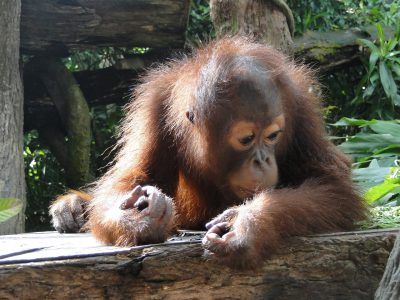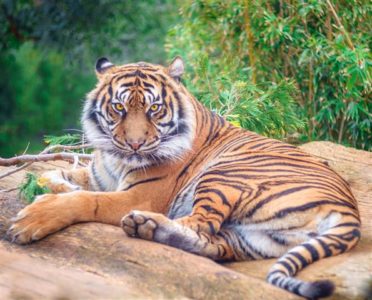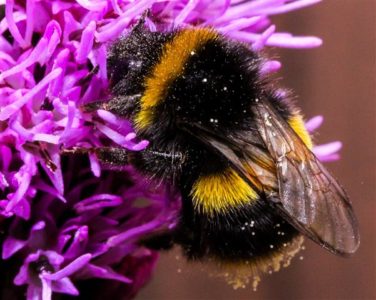From Amur Leopards, Black Rhinos and Bornean Orangutans to Hawksbill Turtles, Vaquitas and bluefin tuna, there are many endangered animals that are at risk of extinction. What that means is that we are at risk of losing these animals completely.

We put considerable time, effort and money into saving endangered animals, but why? Extinction is a natural process that would happen with or without humans. But, while that is the case, research shows that extinctions are happening quicker now than ever before. And, loss of habitat is by far the biggest cause. This is a problem that we need to address, and here are a few reasons why.
1. For the enjoyment of future generations

One of the strongest arguments for saving endangered animals is simply that we want to. We get a lot of pleasure out of seeing and interacting with animals. Species that go extinct now are no longer around for us or future generations to see and enjoy. They can only learn about them in books and on the internet. And, that is heartbreaking.
2. For the environment and other animals
Everything in nature is connected. If you remove one animal or plant it upsets the balance of nature, can change the ecosystem completely and may cause other animals to suffer. For example, bees may seem small and insignificant, but they have a huge role to play in our ecosystem – they are pollinators. This means they are responsible for the reproduction plants. Without bees, many plant species would go extinct, which would upset the entire foodchain. Read more about bees here.

3. For medicinal purposes
Many of our medicines have come from or been inspired by nature. The loss of plants and animals to extinction takes with it the potential for new cures and drugs that we have yet to discover.
What can you do to help endangered animals?
There are many things we can do to help endangered animals, here are a few suggestions.
- Protect wildlife habitats. Habitat loss is one of the biggest causes of extinction. Do your bit to preserve wildlife habitats. Volunteer to maintain a local nature reserve, campaign against deforestation or create a space for nature in your garden.
- Educate others. People are more likely to want to save animals if they know about them. Spend time doing some research and spread the word.
- Stay away from pesticides and herbicides. Animals are venerable to pollutants that can build up in the environment and can die if they consume high levels.
- Shop ethically. Avoid buying products made from endangered animals, such as rhino horns.
- Be an ethical tourist. We all love spending time with animals, but the rise of animal experiences abroad is endangering the lives of many animals. Often they are treated cruelly and kept t in unsatisfactory conditions. Pick your experiences wisely, find out more here.